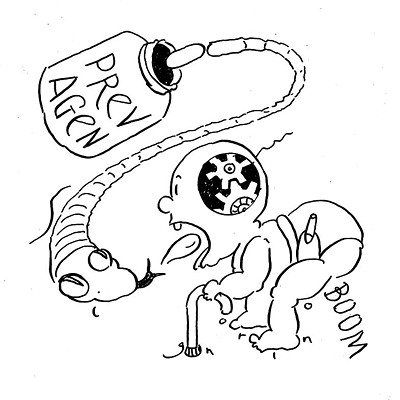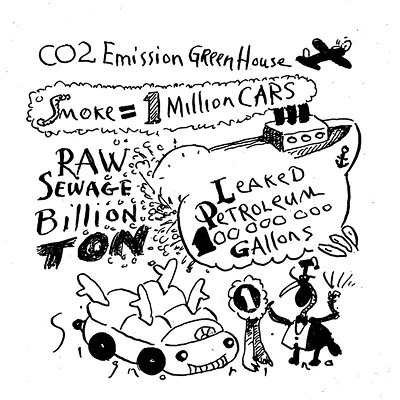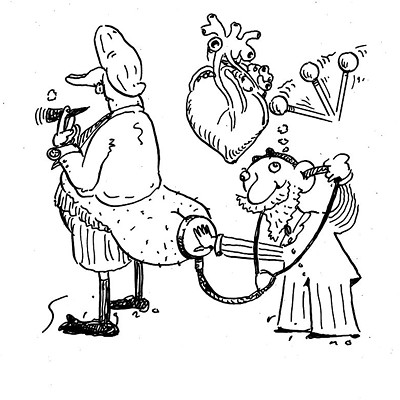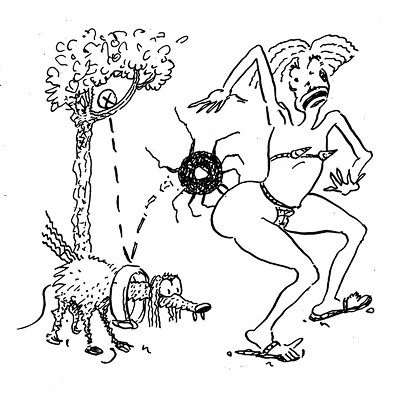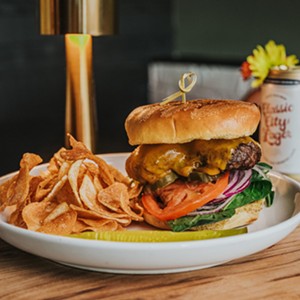Why haven’t we bombed the poppy fields in Afghanistan, wiping out the world’s largest source of opium and blocking the exportation of heroin that’s killing so many Americans? —Billy from Philly
HEARTS and minds, Billy, hearts and minds. We can’t just go around unloading death from above on everyone and everything we don’t like. Or at least we shouldn’t.
True, our nonlethal attempts over the last 15 years to curb Afghan opium-poppy production—which accounts for about 90 percent of the world’s supply—have come up short. And it’s not like we’ve been stingy with air strikes generally: U.S. forces hit Afghanistan with more than 140 in the first seven months of 2016 alone.
But simply obliterating a nation’s most lucrative crop just might cheese off a hard-working farmer or two, and that’s a bad plan when a fundamentalist militia stands ready to hand out Kalashnikovs to the disgruntled and dispossessed.
Total war, in fact, helped make Afghanistan the world poppy-growing champ in the first place. Among many dubious accomplishments during their ten-year occupation of the country, Soviet troops tore up orchards, destroyed irrigation systems, and generally flattened the Afghan agricultural infrastructure. But farmers gotta farm, so they turned to a hardy plant that doesn’t require much intervention to thrive, and also happens to net its cultivators stacks and stacks of cash.
The Cold War ended: out went the Russkies, in rushed the Taliban. For a spell Mullah Omar and his cronies taxed poppy production, but in 2000 they shifted gears and implemented a total ban—less, seemingly, out of Islamic principle (though of course that was the local spin) than as a PR move, to get in good with the U.N. and gain international recognition for Afghanistan’s pariah government.
The Taliban is bad at lots of things—teaching little girls to read, for instance—but they were very good at terrifying their constituents into abandoning the drug trade. Afghan poppy cultivation dropped 91 percent; the opium supply worldwide took a 65 percent plummet. Afghanistan had temporarily won its war on drugs.
After 9/11, though, Omar stuck by his buddy Osama, and the U.S. swooped in. We basically trampled the Afghan economy in the process, though to be fair the Taliban’s prohibition effort had already brought it to the brink of collapse. The farmers who’d been terrorized out of the drug biz resumed planting poppies, and the U.S. military pretty much ignored them. (Ever reliable, those conspiracy-minded sorts will tell you the “real reason” for the war was that the CIA needed to jump-start the heroin trade.) There was a country to be rebuilt from scratch, after all—oh, and did I mention that the Northern Alliance warlords helping us keep the peace had a little drug hustle going on the side?
It wasn’t till 2006 that the Bush administration tried a no-poppies policy of its own, where we went beyond targeting drug traffickers and processors and got into crop eradication. This was a strictly ground-level campaign of plowing and burning—not only weren’t we bombing anything, we weren’t even doing as much aerial spraying as we’d have liked. Such self-restraint came at the insistence of Afghan president Hamid Karzai: spraying from the air would alienate farmers and imperil his government, he argued, though critics noted that many of Karzai’s supporters were cashing in on the opium trade themselves.
Meanwhile the U.S. assisted poppy farmers in planting alternative crops like almonds or wheat, but this was a bit like telling a successful American street dealer he should really look into managing an Arby’s instead. The drug trade offered tastier carrots than we did, and the Taliban, whose protection the farmers sought out, wielded bigger sticks. And those Taliban insurgents were now profiting off the opium market themselves. Violence flared up, and expectations were soon adjusted accordingly: “American officials hope that Afghanistan’s drug problem will someday be only as bad as that of Colombia,” the New York Times reported in 2007.
Obama ended the Bush crop-eradication plan in ‘09. “The poppy farmer is not our enemy,” declared special representative Richard Holbrooke, “the Taliban are.” Economic stability in Afghanistan, the current reasoning goes, is more important than stemming the heroin tide. Counternarcotics efforts have continued, but U.S. soldiers aren’t even allowed to trespass in poppy fields nowadays. Eradication is left to the Afghans, who collect $250 from the U.S. per hectare knocked out—though corruption has led to selective enforcement, with farmers who cozy up to local officials keeping their fields in flower.
The U.N. reported a slight dip in Afghan poppy cultivation for 2015, the first downturn in six years. But it sure wasn’t cheap: as of 2014, the United States had sunk $7.6 billion into curtailing Afghanistan’s drug trade. I know, I know—that sure could have bought a lot of air strikes, right? With demand showing no signs of going away, the poppies would likely just have been planted again. Afghanistan has enough broken eggs for its omelet already, thank you very much.

